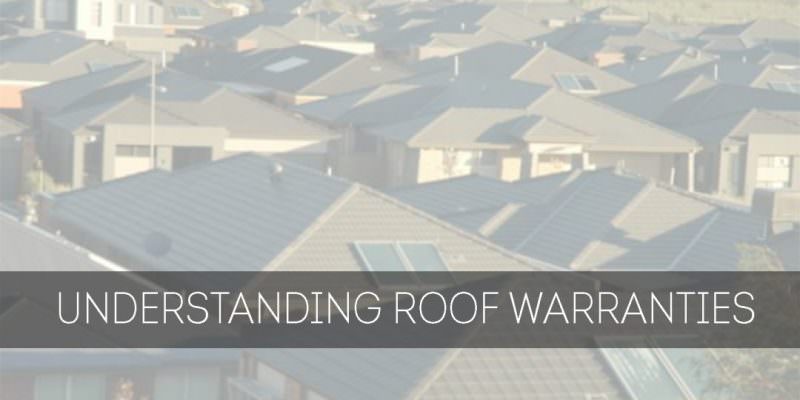Understanding Roof Warranties
Just about everything on the market comes with a warranty these days. Limited lifetime warranty, extended warranty, system warranty: what does it all mean? And do we really need a warranty for everything? What we can tell you is that having a roof warranty in place is one of the best things you can do to protect your home from a worst-case scenario.
Just what exactly is a roof warranty and how much protection can you expect from it? Unfortunately some warranties are not even worth the paper they’re printed on. This is why fully understanding your roof warranty can help in avoiding surprises later on down the road. You can always talk to a trusted roofing contractor to determine the pros and cons of each warranty. But, you should also consider doing a bit of research on your own. Start by asking yourself the following questions:
What type of roof warranty am I getting?
Contractor Warranty vs. Manufacturer Warranty
- Simply put, contractor warranties cover workmanship but not materials.
- Manufacturer warranties typically only cover the materials but there are instances where the warranty may cover the entire system.
Material-Only Warranty vs. Labor-Only Warranty vs. System Warranty
- A roofing material only warranty is offered at a lower cost but only protects you against defects in the roofing materials, which cause the materials to fail before they should. These warranties do not include any coverage for accessories or installation errors.
- In contrast, a labor-only warranty will only cover the labor needed to repair a roof defect and does not cover the cost of materials. It is important to note that this is not the same as a workmanship warranty, meaning repairs needed for installation errors may not be covered.
- As its name suggests, a full system warranty typically covers the full system, including the material, manufacturer approved flashings, and accessories. A full system warranty should cover the full cost, including labor, of any leak repairs not included in the exclusions.
Labor Warranty vs. Roof Workmanship Warranty
- Labor warranties cover the cost to repair a defective roof but do not cover the cost of repairs associated with installation failures.
- A roof workmanship warranty will cover the costs related to installation failures. This type of warranty is more likely to be offered by roofing contractors who are willing to stand behind their work.
NDL vs. Pro-Rated
- A NDL, or “No Dollar Limit” warranty, guarantees that the manufacturer will cover any costs associated with repairing the roof leak.
- A pro-rated warranty loses value over the life of the roof system. For example, you may purchase a 20-year pro-rated warranty that offers NDL coverage for 10 years. By year 13, you may only be covered for 40%. Keeping in mind that the cost of roofing materials is more likely to increase, you now have to pay a portion of the repair costs with a higher material cost. A pro-rated warranty will cost a bit less upfront but may end up costing more in the long run.
What is not covered in a typical roof warranty?
You may be surprised to learn what you are and are not covered for. This is why it is important to always read the fine print and exclusions. What is covered will depend on the warranty that you have received. Below are a few exclusions typically found in roof warranties.
Ponding/Standing Water
Warranties that exclude ponding water usually exclude any issues caused by the ponding water such as roof leaks or damage to the area.
Consequential Damages
Most warranties do not cover consequential or interior damages caused by roof leaks.
Acts of God
High winds, hail, tornados, floods, fires, etc. are typically not covered. However, there are instances where extra wind and hail coverage can be added.
Improper Roof Repair
If your contractor is using improper repair materials or methods, your manufacturer warranty may be voided and the cost to fix the improper repairs will not be covered.
Unauthorized Alterations or Repairs
Before installing a new rooftop unit, make sure you talk to your manufacturer and ensure that you are using a manufacturer authorized roofer in order to avoid voiding your warranty.
Also keep in mind that most manufacturers’ warranties will be void if the homeowner cannot prove that they have periodically maintained their roof. Most warranties require, or at least recommend, regular roof inspections.
As you can see, roof warranty coverage can vary greatly. Seldom will you find two roof warranties that are completely identical. Make your final decision based on what fits into your budget, what is most valuable long term, and what is most important for you. Above all, be sure to ask questions, read the fine print, and understand what it is you’re covered and not covered for.








